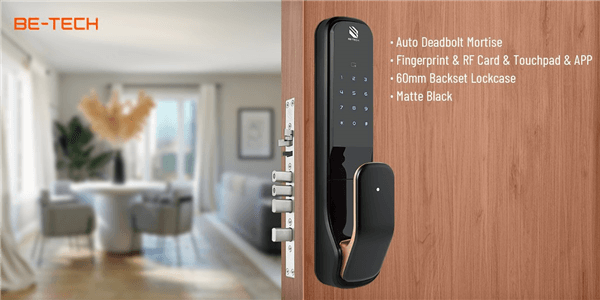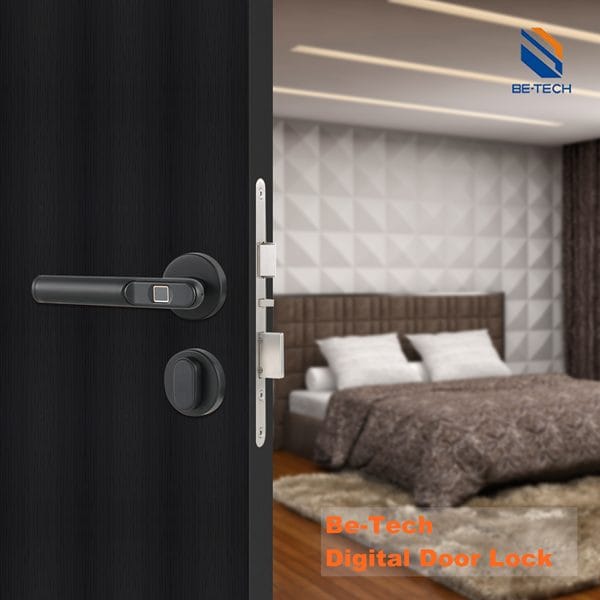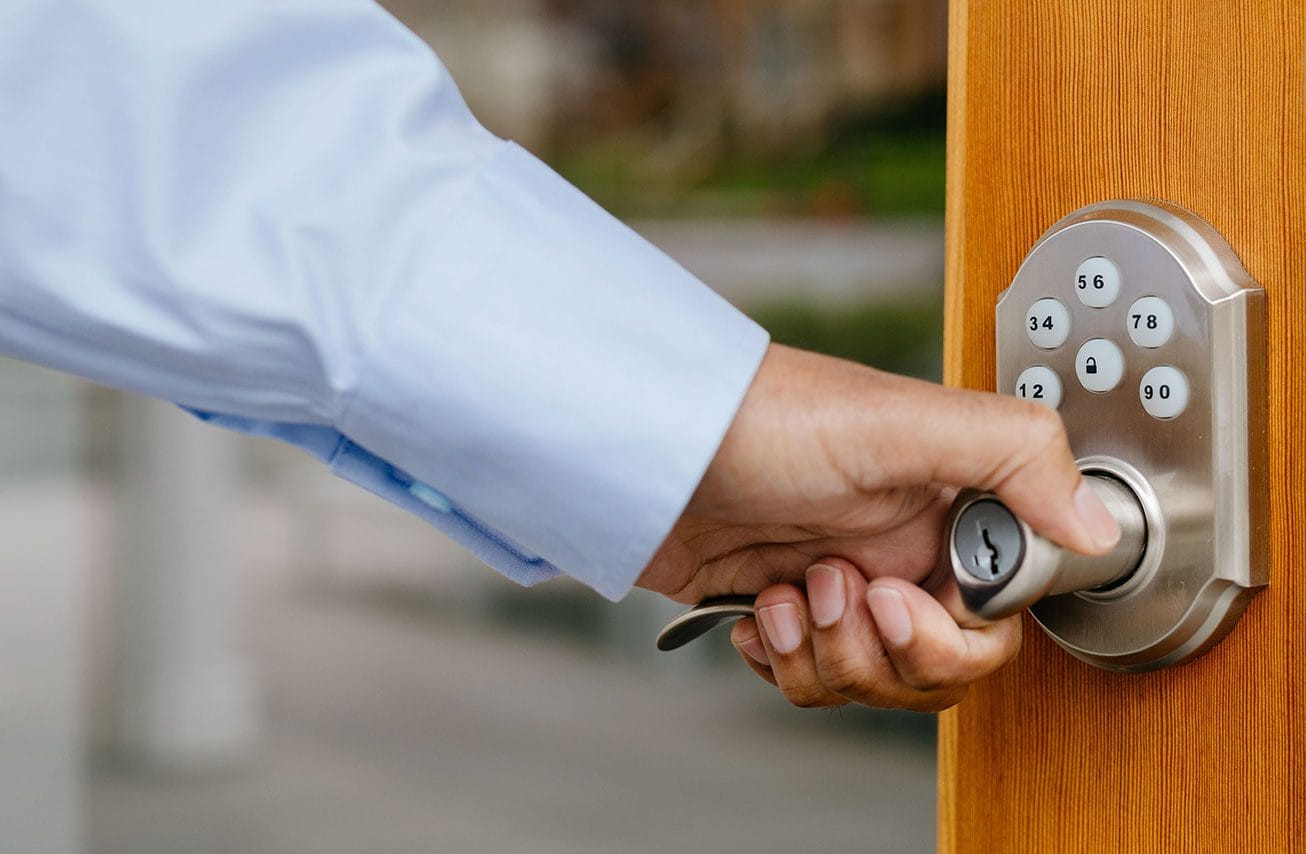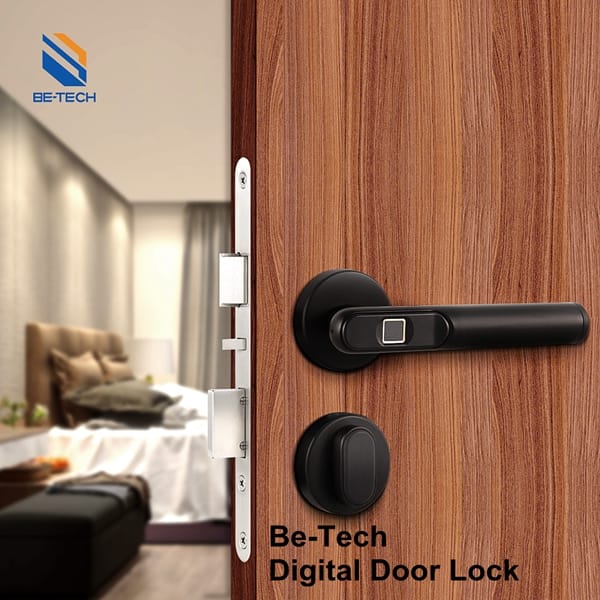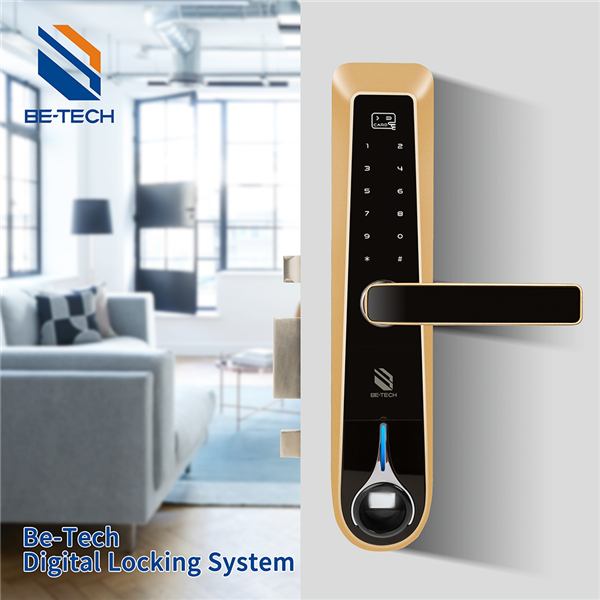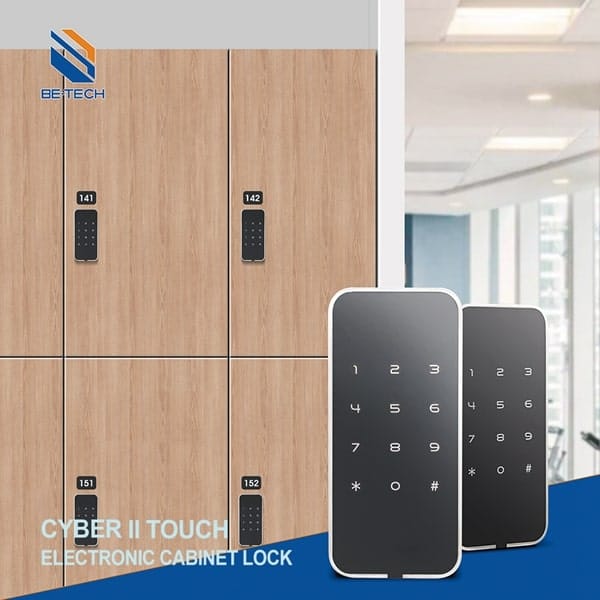In an era where security and convenience are paramount, homeowners are increasingly turning to advanced locking systems to protect their homes and loved ones. Among the various options available, the Fingerprint, RFID Card, and Touchpad Digital Door Lock stands out as a top choice for residential places. This comprehensive guide will explore the features, benefits, and product recommendations for these cutting-edge locks, ensuring you make an informed decision for your home security needs.
Understanding Digital Door Locks
Digital door locks utilize advanced technology to provide enhanced security and convenience for homeowners. These locks can be categorized into three primary types:
1. Fingerprint Locks
How They Work: Fingerprint locks use biometric technology to scan and recognize a user’s fingerprint. Only authorized fingerprints can unlock the door, ensuring that only registered individuals gain access.
Key Features:
- High Security: Each fingerprint is unique, making unauthorized access nearly impossible.
- User-Friendly: Homeowners can enter their homes without the need for physical keys or cards.
- Durable Design: Built to withstand heavy use, fingerprint locks are ideal for high-traffic residential environments.
Advantages:
- Eliminates Key Loss: No need for physical keys reduces the risk of unauthorized access due to lost or stolen keys.
- Quick Access: Homeowners can enter their homes quickly, enhancing their overall experience.
Disadvantages:
- Cost: Typically more expensive than traditional locks.
- Maintenance: Requires regular cleaning and occasional recalibration.
2. RFID Card Locks
How They Work: RFID (Radio Frequency Identification) locks use cards embedded with chips that communicate with the lock when in proximity. Users simply wave or tap their card to unlock the door.
Key Features:
- Convenient Access: Quick and easy entry for homeowners.
- Programmable: Cards can be easily reprogrammed or deactivated as needed.
Advantages:
- Ease of Use: Users can access their homes without fumbling for keys.
- Flexible Management: Homeowners can manage access permissions easily, ensuring security.
Disadvantages:
- Potential for Loss: Cards can be lost or stolen, posing a security risk.
- Battery Dependency: Requires batteries that need to be monitored and replaced.
3. Touchpad Locks
How They Work: Touchpad locks feature a keypad where users enter a unique code to gain access. This system allows for easy entry without physical keys.
Key Features:
- Customizable Codes: Homeowners can change codes as needed for added security.
- No Physical Keys Needed: Reduces the risk of lost keys.
Advantages:
- Cost-Effective: Generally more affordable than fingerprint or RFID locks.
- User Control: Homeowners can easily enter their codes without needing additional devices.
Disadvantages:
- Code Sharing Risk: Codes can be shared or forgotten, leading to access issues.
- Weather Sensitivity: Keypads may be affected by extreme weather conditions.
Comparative Analysis of Lock Types
To help homeowners make informed decisions, here’s a comparative table of the three lock types:
| Feature | Fingerprint Locks | RFID Card Locks | Touchpad Locks |
|---|---|---|---|
| Security Level | Very High | High | Moderate |
| User Convenience | High | Very High | High |
| Cost | High | Moderate | Low |
| Installation | Moderate | Easy | Easy |
| Maintenance | Moderate | Low | Low |
Benefits of Digital Door Locks
Digital door locks offer numerous benefits that enhance both security and convenience for homeowners:
- Enhanced Security: With advanced encryption and biometric technology, these locks provide a higher level of security compared to traditional locks. The unique nature of fingerprints and the programmable nature of RFID cards make unauthorized access significantly more difficult.
- Convenience: Forgetting keys is a thing of the past. Users can access their homes with just a fingerprint or a simple swipe of an RFID card. Touchpad locks allow for easy code entry, providing multiple access methods.
- User Management: Many digital locks allow homeowners to manage user access easily, adding or removing users as needed. This is particularly useful for families or shared living situations.
- Integration with Smart Home Systems: Many digital locks can be integrated with smart home systems, allowing for remote access and monitoring. This feature enhances convenience and security, enabling homeowners to control their locks from anywhere.
- Cost Savings: By investing in digital door locks, homeowners can save on costs associated with rekeying locks and managing physical keys. The ability to reprogram RFID cards and change access codes quickly further enhances operational efficiency.
Product Recommendations
Here are some top recommendations for Fingerprint and RFID Card and Touchpad Digital Door Locks:
- Be-Tech I7A6FMTW Biometric Door Lock
- Description: This lock features five unlocking methods, including fingerprint recognition, RFID card access, and a PIN code.
- Relevance: Ideal for families needing multiple access methods, ensuring everyone can enter easily.
- Transition: For those looking for a reliable and versatile option, the Be-Tech I7A6FMTW is a perfect choice. Learn more about the Be-Tech I7A6FMTW here.
- Fingerprint and RFID Card and Touchpad Digital Door Lock – H3A5FMTL
- Description: This model combines a sleek design with advanced security features, including anti-tamper alerts.
- Relevance: Its stylish appearance makes it suitable for modern homes while maintaining high security.
- Transition: If aesthetics are as important as functionality, consider the H3A5FMTL for your entryway. Check out the H3A5FMTL here.
- Premium RF Card Digital Door Lock with Anti-Panic V3A8MT
- Description: This lock offers robust security features, including an anti-panic function that allows for easy exit in emergencies.
- Relevance: Perfect for families who prioritize safety without compromising on convenience.
- Transition: For those prioritizing safety features, the Premium RF Card Digital Door Lock is an excellent investment. Explore the Premium RF Card Lock here.
Installation Considerations
When implementing a new digital door lock system, homeowners should consider the following:
- Professional vs. DIY Installation: While some locks can be installed easily by homeowners, others may require professional installation to ensure proper setup and functionality. Assess the complexity of the chosen system before deciding.
- Integration with Existing Systems: Ensure that the new locking system can integrate seamlessly with existing smart home systems. This will facilitate easier management of access and enhance overall home automation.
- Training and User Guides: Provide comprehensive training and user guides for all household members on how to use and manage the new locking systems. This will ensure that everyone can use the locks effectively and troubleshoot any issues that may arise.
Maintenance and Troubleshooting
Regular maintenance is essential to ensure the longevity and functionality of digital door locks. Here are some tips for homeowners:
- Routine Inspections: Conduct regular inspections of all locks to ensure they are functioning correctly. Look for signs of wear and tear, and address any issues promptly.
- Battery Monitoring: For RFID and touchpad locks, regularly check battery levels and replace them as needed. Many modern locks provide low-battery alerts, but proactive monitoring is essential.
- Software Updates: Keep the locking system’s software up to date to ensure optimal performance and security. Regular updates can also introduce new features and improvements.
Enhancing Home Security with Digital Door Locks
Digital door locks not only improve security but also significantly enhance the overall home experience. Here’s how:
- Increased Security and Peace of Mind: Homeowners feel more secure knowing that their homes are protected by advanced locking systems. The elimination of physical keys reduces the risk of unauthorized access, providing peace of mind.
- Convenience and User-Friendly Features: Digital locks offer a range of convenient features, such as quick access, programmable cards, and customizable codes. These features make it easier for homeowners to manage access and secure their homes.
- Improved Home Automation Integration: Many digital locks can be integrated with smart home systems, allowing homeowners to control and monitor access remotely. This integration enhances overall home automation and convenience.
- Cost Savings and Operational Efficiency: By investing in digital door locks, homeowners can save on costs associated with rekeying locks and managing physical keys. The ability to reprogram RFID cards and change access codes quickly further enhances operational efficiency.
Conclusion
As the demand for advanced home security solutions continues to grow, the importance of digital door locks cannot be overstated. Fingerprint, RFID card, and touchpad digital door locks offer homeowners the tools they need to enhance security, convenience, and overall home automation. By investing in these cutting-edge locking systems, homeowners can stay ahead of the curve, improve operational efficiency, and ultimately enjoy a safer and more convenient living experience.
For more information on Be-Tech Lock’s products and solutions, visit Be-Tech Lock. To learn about the latest trends in smart home security, explore articles like Smart Locks: The Future of Home Security and Convenience in 2024 and The Ultimate Guide to Smart Locks: Modern Home Security Solutions.


